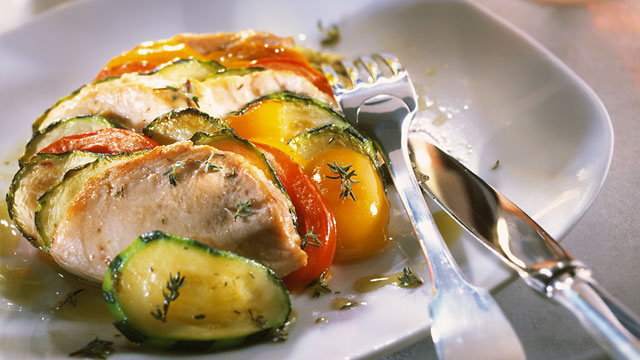
Eating a Mediterranean diet rich in olive oil and nuts lowers the rate of major cardiovascular events, at least among people at increased risk for heart disease, a new study found.
In a randomized trial in Spain in high-risk people, those who ate the Mediterranean diet supplemented with extra-virgin olive oil or mixed nuts saw a reduction in the rate of major cardiovascular events like heart attacks and strokes by nearly 30 percent compared with a control group eating a low-fat diet, according to Dr. Ramón Estruch of the Hospital Clinic in Barcelona, and colleagues.
The results support the use of the Mediterranean diet for “primary prevention” of heart disease, the researchers wrote online in the New England Journal of Medicine.
Read this story on www.medpagetoday.com.
But they cautioned that participants in the study lived in a Mediterranean country and were already at high risk for cardiovascular events, so it is not clear how well the results will apply to other people.
Nonetheless, the trial’s data and safety monitoring board ruled late in 2011 that the benefits were sufficiently clear that the study should be stopped, Estruch and colleagues reported.
The traditional Mediterranean diet, the researchers noted, is characterized by lots of olive oil, fruit, nuts, vegetables, legumes, and cereals, some fish and poultry, and limited amounts of dairy products, red meat, processed meats, and sweets. As well, the diet includes moderate amounts of wine with meals.
To test the idea that the diet protected against heart disease, the researchers randomly assigned 7,447 people, ages 55 to 80, to one of three diets — a Mediterranean diet with additional extra-virgin olive oil, a Mediterranean diet supplemented with mixed nuts, or a control diet, which consisted essentially of advice to reduce dietary fat.
The majority of the participants were women and were free of cardiovascular disease when they started, but either had diabetes or at least three important cardiovascular risk factors, such as smoking, hypertension, or obesity. They received quarterly educational sessions and, depending on group assignment, free extra-virgin olive oil, mixed nuts, or small nonfood gifts
The primary endpoint was a composite of strokes, heart attacks, and cardiovascular death. The olive-oil diet led to a 28 percent reduction in risk, compared with the control diet. The mixed nut diet led to a similar risk reduction.
Results were similar when the two Mediterranean diets were combined and compared with the control diet, they found.
The researchers cautioned that loss to follow-up might have affected the results, although those lost were mainly from the control group and had worse cardiovascular risk profiles than those who remained in the trial.
Source: ABC News, February 25, 2013




